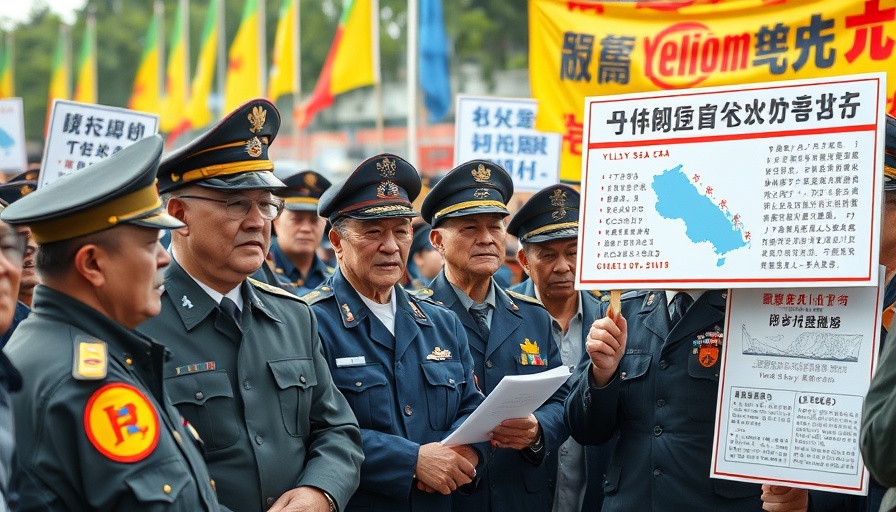
Disentangling the Yellow Sea Dispute: An Overview
The ongoing dispute over territorial waters between China and South Korea in the Yellow Sea has garnered attention as tensions rise and diplomatic efforts struggle to keep pace with national interests. This complex situation is shaped by historical grievances, economic dependencies, and strategic calculations that transcend mere territorial rights.
Historical Context: The Foundations of the Dispute
The roots of this conflict stretch back to historical claims of sovereignty, geopolitical maneuvering, and international treaties that have often been overshadowed by national pride. The Yellow Sea, rich in resources and strategic maritime routes, is vital for both countries. China’s assertiveness in its territorial claims, juxtaposed with South Korea’s equally resolute stance, has created a stalemate where dialogue often seems like a faint hope.
Recent Developments: Understanding the Current Dynamics
Recent aggressive measures from both sides have escalated the situation, leading to increased naval activity and confrontations in contested waters. As both nations bolster their military presence, the potential for miscalculation looms large. Diplomatic channels are critical yet strained, leaving uncertainties about how both sides might de-escalate tensions.
Social and Economic Implications of Maritime Claims
The social fabric of communities along the coastlines of both nations is being tested by these maritime claims. Fishermen's livelihoods, rooted in these waters, are caught in the crossfire of national policies and international trade dynamics. The economic ramifications extend beyond local communities, potentially impacting broader trade relationships, especially given the interconnectedness of the South Korean and Chinese economies.
International Relations and Strategic Implications
From the perspective of international relations, the Yellow Sea dispute underscores the complexities of navigating a multipolar world where national interests often clash with regional stability. The involvement of third-party nations, especially under frameworks like the United Nations, complicates the dispute further. As nations watch closely, how China and South Korea resolve this dispute will have significant ramifications on geopolitical alignments in East Asia.
Future Insights and Potential Resolutions
The path forward may involve a mixture of diplomacy and conflict management strategies that could include multilateral discussions or engagement with regional powers. With the global economy increasingly at risk from regional disputes, finding common ground could become a pressing priority. Analysts are pushing for innovative solutions that consider historical grievances while fostering collaborative resource management efforts.
Conclusion: The Way Forward
The Yellow Sea dispute not only reflects the tensions between two nations but also symbolizes broader issues within international relations today. As professionals respond to these challenges, fostering dialogue and understanding will be paramount. The complexities demand a nuanced approach that recognizes the stakes involved—not only for China and South Korea but for regional and global stability as well.
 Add Row
Add Row  Add
Add 




Write A Comment